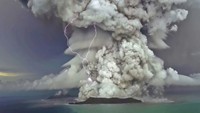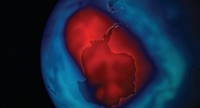Advertisement
Grab your lab coat. Let's get started
Welcome!
Welcome!
Create an account below to get 6 C&EN articles per month, receive newsletters and more - all free.
It seems this is your first time logging in online. Please enter the following information to continue.
As an ACS member you automatically get access to this site. All we need is few more details to create your reading experience.
Not you? Sign in with a different account.
Not you? Sign in with a different account.
ERROR 1
ERROR 1
ERROR 2
ERROR 2
ERROR 2
ERROR 2
ERROR 2
Password and Confirm password must match.
If you have an ACS member number, please enter it here so we can link this account to your membership. (optional)
ERROR 2
ACS values your privacy. By submitting your information, you are gaining access to C&EN and subscribing to our weekly newsletter. We use the information you provide to make your reading experience better, and we will never sell your data to third party members.
Environment
NASA Probing Why Ozone Hole Is Smaller
by Cheryl Hogue
November 10, 2014
| A version of this story appeared in
Volume 92, Issue 45

The so-called hole in the stratospheric ozone layer above Antarctica this year peaked at about the same size it reached in the past two years, NASA reports. But this year’s hole—an area of depleted ozone that forms each year in August and September—was smaller than the holes that formed from 1998 to 2006, NASA reports. Researchers are working to determine why the ozone hole has been smaller during the past decade, the agency says. Increases in stratospheric temperature over Antarctica could be the reason, NASA says, because ozone depletion occurs more rapidly at colder temperatures. Another possibility is that the concentration of chlorine, which breaks down ozone in the stratosphere, is dropping because of international efforts to curb production and use of chlorofluorocarbons and other chemicals linked to ozone depletion. Ground-based and satellite measurements indicate that chlorine levels are falling, NASA says, but temperature analyses for the stratosphere over Antarctica aren’t reliable enough to determine long-term trends.




Join the conversation
Contact the reporter
Submit a Letter to the Editor for publication
Engage with us on Twitter